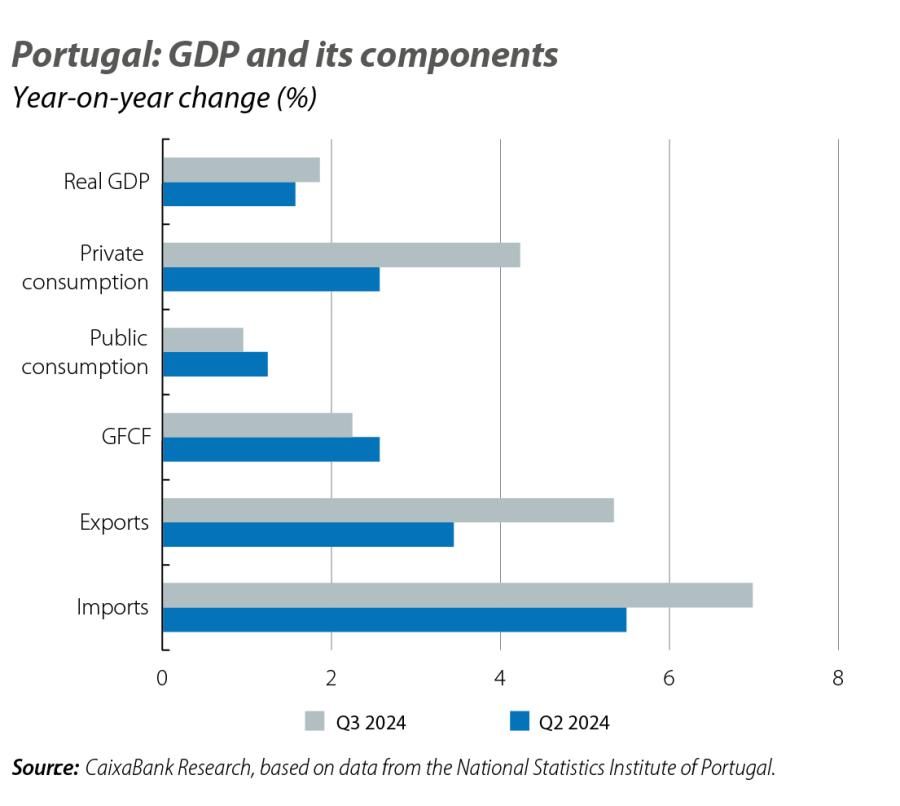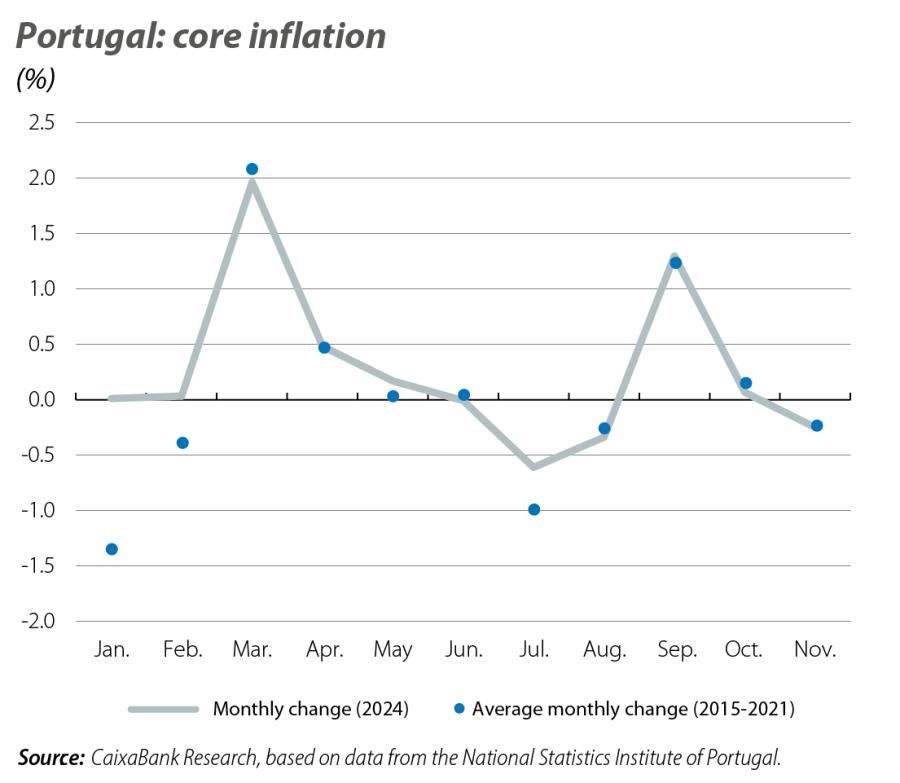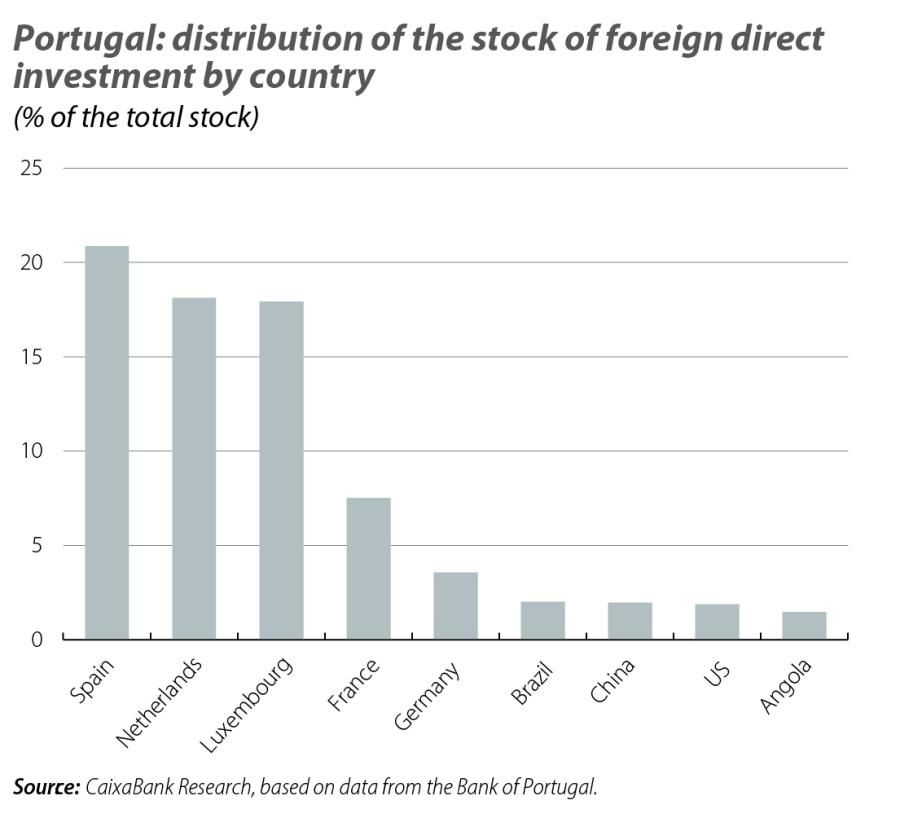Domestic demand in Portugal, a tailwind
Portugal’s National statistics Institute confirmed that the economy grew by 0.2% quarter-on-quarter in Q3 (1.9% year-on-year), with a significant contribution from domestic demand, highlighting the strength of private consumption.

The dynamism of domestic demand sustains GDP growth in Q3
Portugal’s National statistics Institute confirmed that the economy grew by 0.2% quarter-on-quarter in Q3 (1.9% year-on-year), with a significant contribution from domestic demand, highlighting the strength of private consumption. However, foreign demand deducted 0.78 pps, as a result of a more moderate growth in exports (5.3%) than in imports (7%). The strong growth of import underscores the high dependence of domestic demand on imported goods and services, which is the main risk factor for CaixaBank Research’s current GDP growth forecast for 2024 (1.7%).
For 2025, we expect a more expansionary tone, with GDP growth of 2.3%. Moreover, there are upside risks to this forecast concentrated in domestic activity, thanks to the good outlook for the labour market and investment, which will benefit from lower financing costs and the boost provided by investments associated with NGEU funds. The foreign sector will remain the main downside risk factor, due to geopolitical tensions and the uncertainty surrounding the impact of a more protectionist policy from the Trump administration.

Persistent inflation in November
Inflation, according to the flash indicator, rebounded in November to 2.5% from the 2.3% recorded in October. This increase is largely explained by the energy component, which was affected by base effects (the energy index fell sharply in November 2023) that are likely to be repeated in December. The core inflation rate remained at 2.6% and is following a trend more compatible with its historical seasonality of recent months. We therefore maintain our forecast for average inflation of 2.4% for 2024 as a whole.

Employment offers another surprise and reaches a new record in October
The seasonally adjusted data show a 1.4% year-on-year increase in the number of people in employment, placing the figure at 5.105 million. This dynamic is accompanied by wage growth: the average gross remuneration per worker in real terms increased by more than 4% year-on-year in Q2. The latest data confirm that the wage pressure is likely to continue in the final quarter of the year: in October, wages in the trade sector rose 6.0% year-on-year, far outpacing the increase in inflation in the same period (2.3%).
Significant increase in the stock of foreign direct investment (FDI), which rises to 70% of GDP in Q3 2024
Specifically, it reached 194.5 billion euros, 5% more than at the end of 2023. The countries that have invested the most in Portugal are Spain, the Netherlands and Luxembourg, and the main sector is that of finance, accounting for 21% of the total. Investment in real estate has been gaining prominence, reaching 17.2%
of the total (13.9% in 2019). This is led by the US and Brazil, whose investments in this asset class represent 42.2% and 43.5% of their total FDI in Portugal (17.8% and 29.7% in 2019).
